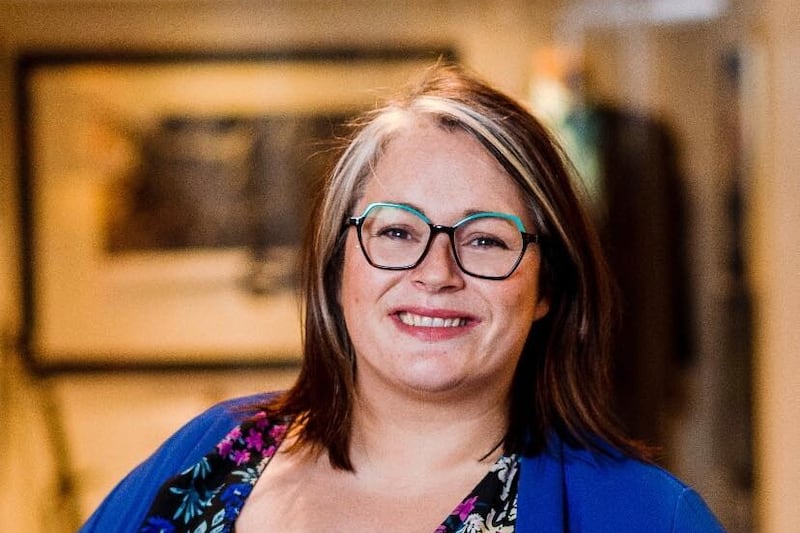Everyone remembers where they were the day the Good Friday Agreement was signed.
I was stationed at my grandparents' house, finishing my homework. As an eight-year-old child living through the tail end of the conflict, I was somewhat oblivious to political play in Northern Ireland. Yet, I was aware enough to know that pin-drop silence was expected when the daily news aired at about 6pm.
Silence had become such an ingrained aspect of childhood that I also developed the ability to discern the ‘mood’ of a room by interpreting the body language of adults around me.
As the TV screen flashed with that iconic image of Bertie Ahern and Tony Blair sharing that peace had just been brokered, there was a collective gasp between my grandparents. The enormity of this announcement reverberated around the room.

Whilst their reaction did not signal fear, danger or disbelief, the tone of this gasp was unfamiliar, suggesting something uncharted had just happened.
My grandfather’s response remains etched in my mind. Known affectionately as ‘the quiet man’, Granda Bill was a towering figure, both literally and metaphorically.
As an English-born former Marine who married a devout Catholic woman and settled in Northern Ireland, he rarely passed comment on anyone, or anything, let alone Northern Irish politics.
Much to my confusion, Granda Bill shook his head and said, "It will never last." Granny Bridie simply rolled her eyes and returned to the knitting.

I wasn’t sure what had taken place, nor could I anticipate what it come to mean.
Fast forward 25 years, past an internship with Senator John McCain, five elections, three years as a councillor then special political adviser and most recently as an MLA, it’s safe to say I am no longer confused.

The harsh realities of political life in a society transitioning from conflict have brought home many truths, none of which were obvious to my eight-year-old eye.
I learned pretty quickly that cultural parity of esteem only exists if you file into one of two camps; that there is no constitutional mechanism to promote or encourage our existence as one united community and that ‘peace’, as we know it, is both fractious and fragile.
How apt were the words of the quiet man? Our power-sharing/carving institutions have collapsed six times and have failed to sit for almost 50 per cent of the period since they were first established.
Meanwhile, hospital waiting lists have tripled, public services cripple under budgetary constraints, workers take to the streets in demand of equal pay, and the community and voluntary sector teeters on the brink of collapse as the withdrawal of the European Social Fund threatens to eradicate services supporting the most vulnerable in society.
Just last week, the enduring scourge of paramilitarism was highlighted in the media as masked men petrol bombed and pillaged their way through Co Down. This is not the type of ‘peace’ my generation was promised.
Sadly, we lost Granda Bill in 2002: he did not live to see this transition unfold. Yet, I often wonder what he would have made of my career choices, the current impasse and Northern Ireland’s prospects for the next quarter century.
Like most men of his generation, Granda Bill went to war to fight against fascism and defend the liberal values underpinning democracy. Perhaps, if he were alive today, he would simply shake his head and say, "This stalemate will not last".
Maybe he would encourage people like me, members of the ceasefire generation, to hold strong and celebrate, for we have much to be grateful for as we have enjoyed a peace that so many did not live to see.

One thing the quiet man and the past 25 years have taught me is that silence is often a virtue. When we practise silence, we are also practising active and meaningful listening. Silence creates the space to hear what others really have to say; it signals that we are trying to understand them better; that we are not just waiting for our turn to speak, but are also able to empathise. As I look to the future and to our desperate need for progress and political change, silence is the only option.
As Northern Ireland once again pushes politics to the brink we face a familiar stalemate. This time we now have three entities seeking to carve a seat at the power-sharing table and many are struggling to hear what they really have to say.
Voters aren’t silent but are being silenced. They are losing faith in our institutions and in our peace that was so hard won. Calls have already been made to return direct rule.
Yet peace and politics is built from the ground up. If we are truly committed to democracy then we need an agreement reflective of our societal make up, one which realises that the threats and challenges brought about by the modern age do not discriminate on ethno-religious or identity-marking grounds.
We need an agreement that recognises the fragility of humanity; an agreement that reinforces how our strengths lie in diversity while our resolutions are found through social cohesion not dislocation.
Is such an agreement even possible? Time will tell. For now, I choose silence while I seek to really hear what others have to say.








